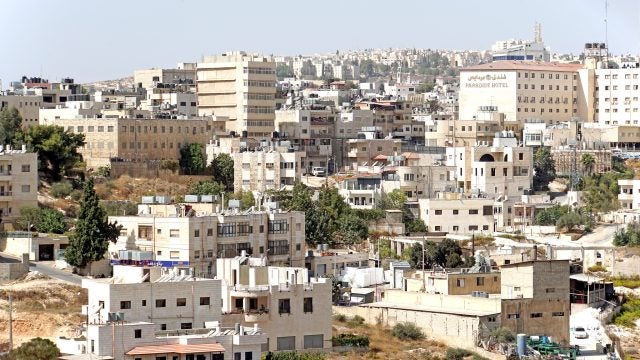![U.S. Secretary of State Hillary Rodham Clinton (left) shakes hands with Sudanese Vice President Ali Osman Taha (right) after their bilateral meeting at the Waldorf-Astoria in New York, New York, on September 21, 2010. [State Department photo/ Public Domain]](https://gjia.georgetown.edu/wp-content/uploads/sites/20/2023/10/Secretary_Clinton_Shakes_Hands_With_Sudanese_Vice_President_Ali_Osman_Taha-2000x1125.jpg)
Title: The Georgetown Journal’s Guide to US-Sudan Relations
Relations between the United States and the Republic of Sudan have reached their nadir. The United States cut formal diplomatic ties with Sudan nearly 30 years ago and sincere efforts to normalize relations have been lacking since that time. The United States seems unlikely to ease the severe economic sanctions it has imposed; similarly the Republic of Sudan remains just as stubborn in its flagrant dismissal of international demands that it improve its abysmal human rights record.
Following Sudan’s independence in 1956, relations between the two nations remained cordial. However, relations soured in 1973 when the Palestinian paramilitary group Black September assassinated U.S. Ambassador Cleo A. Noel and Deputy Chief of Mission Curtis G. Moore in Khartoum. When Sudanese officials later released the captured terrorists into Egyptian custody, the U.S. Ambassador to Sudan withdrew in protest.
Relations remained tense for the next decade and further declined amid speculation that Khartoum knowingly harbored a sizable group of Libyan terrorists. Despite these tensions, until 1989, “Sudan was the single largest recipient of U.S. development and military assistance in sub-Saharan Africa.” But following the military coup in 1989 that brought Omar al-Bashir to power, American development assistance was terminated. Diplomatic relations have remained tense ever since.
President al-Bashir angered the U.S. government in the 1990s by backing the Iraqi invasion of Kuwait and providing a sanctuary for numerous terrorist leaders including Osama bin Laden and Abu Nidal. Due to these ties, the United States designated Sudan a state sponsor of terrorism. Embassy operations were suspended in 1996 and a year later, harsh economic sanctions were imposed.
The regime’s constant dismissal of international law and humanitarian norms in regards to the Darfur, South Kordofan, and Blue Nile regions inflamed tensions. President al-Bashir has been indicted by the International Criminal Court, and his government has rejected the charges.
On the 7th of June, just a few days before South Sudan’s long-awaited independence, SAF (Sudanese Armed Forces) planes began bombarding the Nuba Mountains in the border region of South Kordofan. Within days, the fighting had escalated, as the SAF moved against the banned Sudanese People’s Liberation Movement-North (SPLM-N), which calls for the overthrow of President Bashir’s government. Clashes between the SAF and the South Sudanese armed forces, the SPLA, occurred at the borders. Soon after, the small confrontation the SAF had initiated had turned into a full-blown war. Some suggested that the SAF no longer sought to go after the SPLM-N insurgents, but instead, was engaging in “ethnic cleansing.”
Sudan, feeling the negative effects of Western sanctions, has called for their easing. Washington agreed to lift some sanctions if Khartoum abided by the Comprehensive Peace Agreement with the South and recognized South Sudan’s independence. For the most part Sudan has fulfilled these obligations.
In July, Senate Foreign Relations Committee Chairman John Kerry (D-MA), stated:
“Because of the successful January referendum, President Obama initiated a review of Sudan’s designation as a State Sponsor of Terrorism. Completion of that process rests on the review itself as well as the resolution of all the major issues outstanding from the Comprehensive Peace Agreement, including Abyei. Obviously this process will not move forward if gross human rights violations are taking place.”
Although Sudan has mostly accepted its responsibilities under the Comprehensive Peace Agreement, The United States has not eased political or economic sanctions. The recognition of South Sudan’s independence and an agreement with the South to demilitarize the disputed border region of Abyei solicited no change in U.S. policy. Persistent fighting in Darfur, Southern Kordofan, and Blue Nile region remains an impediment to the normalization of relations. Given the gravity of these ongoing issues, improvement in the strained situation between the two countries seems an unlikely scenario in the near future.
. . .
Meredith Strike is a sophomore at Georgetown University and section editor of the Georgetown Journal’s Business and Economics section.
Image Credit: U.S. Department of State from United States, Public domain, via Wikimedia Commons
This is an archived article. While every effort is made to conserve hyperlinks and information, GJIA’s archived content sources online content between 2011 – 2019 which may no longer be accessible or correct.
Recommended Articles

This article explores how the Palestinian crisis and the death of the two-state solution endangers the Hashemite Kingdom of Jordan. It illuminates the complicated relationship between Jordan, Israel, and Palestine…

On May 20, 2025, the World Health Assembly unanimously adopted the World Health Organization (WHO) Pandemic Agreement, an international treaty designed to strengthen pandemic prevention, preparedness, and…

This article explores the uncertain future of Arctic governance amid shifting global geopolitics. It argues that whether Washington and Moscow opt for confrontation or cooperation, multilateralism in the Arctic…